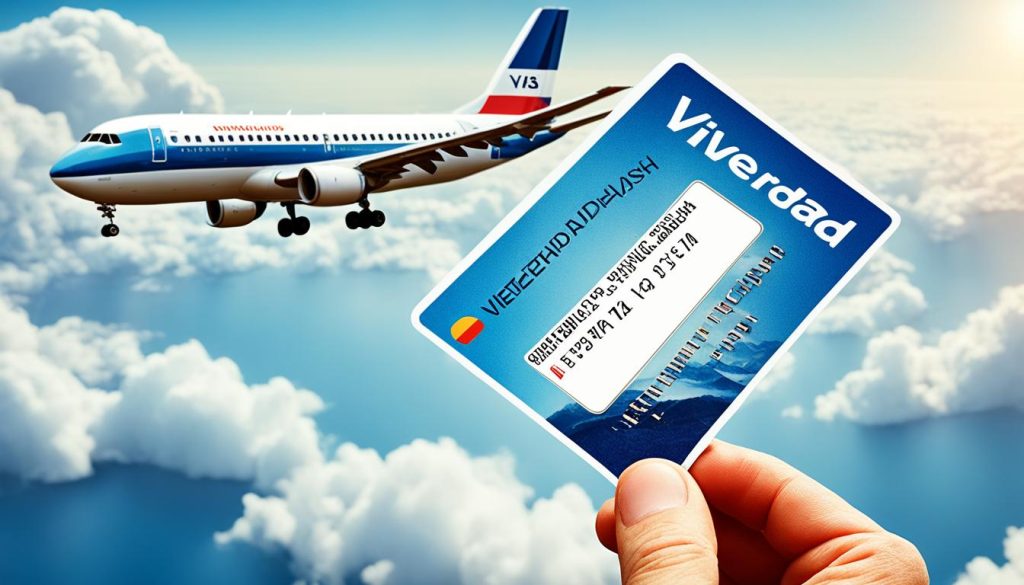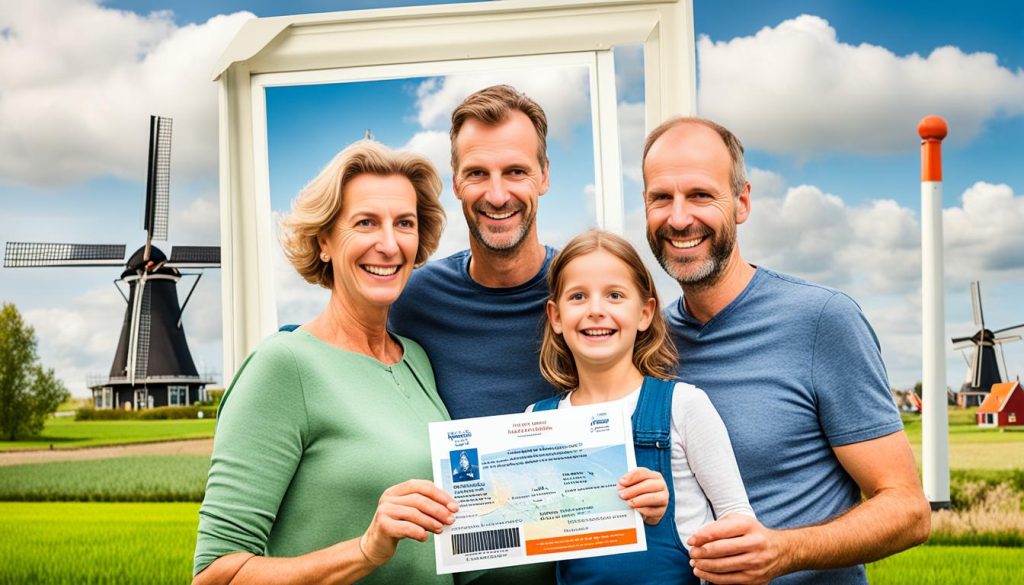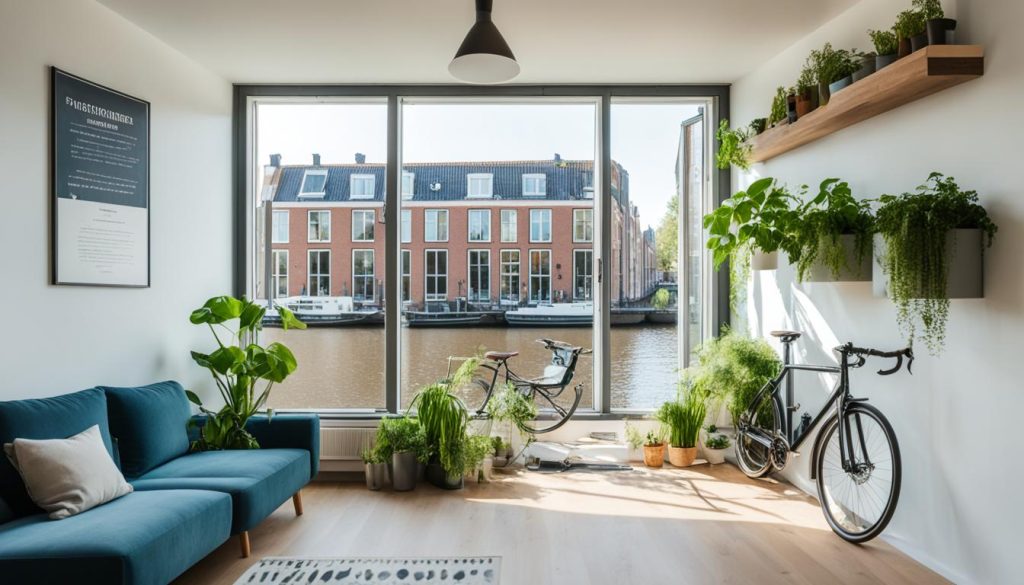Do you want to stay in the Netherlands for a long time? You might need a Netherlands residence permit. This applies whether you come from EU/EEA countries, Switzerland, or elsewhere. If you’re a family member of an EU citizen, you could go through the Verification against EU Law process. Make sure you have a valid passport, enough money, good health insurance, and a clear reason to stay. You might also need to get tested for tuberculosis in some situations.
Key Takeaways
- A Netherlands residence permit is necessary for staying longer than three months.
- Permit validity can extend up to five years based on the type and circumstances.
- EU/EEA, Swiss nationals, and family members of EU citizens have different regulations.
- Applicants need valid documentation, sufficient finances, and health insurance.
- Additional steps such as tuberculosis testing may apply.
Who Needs a Residence Permit to Stay in the Netherlands
Getting a residence permit in the Netherlands depends on where you’re from and your situation. It’s key to know these details for a legal stay in this lovely country.
EU/EEA and Swiss Nationals
People from EU/EEA countries and Switzerland don’t need a residence permit for the Netherlands. But, if they plan to live there for a while, they must register with the local authorities. Registering helps them access public services and rights in the Netherlands.
Third Country Nationals
Those from outside the EU/EEA need a Dutch residence permit for long visits. The type of permit you need changes based on why you’re staying, like for work or study. Getting your permit before you arrive helps avoid legal trouble during your stay.
Family Members of EU Citizens
Family members of EU citizens can join them in the Netherlands. They must apply for Verification against EU Law for a legal stay certificate. Though, Dutch nationals’ relatives might follow a different route. They apply for a specific permit according to Immigration and Naturalisation Service (IND) rules for third country nationals.
General Conditions for a Netherlands Residence Permit
It’s vital to know the conditions for a residence permit in the Netherlands. Let’s look at the essential requirements to stay there.
Valid Passport/Identity Document
You need a current passport or ID. It must be valid for your whole stay. Keeping your ID updated is vital for meeting the Netherlands permit requirements.
Proof of Sufficient Financial Means
You must show you have enough money. This can be payslips, share documents, or benefits letters. It proves you can financially support yourself, a key to a successful application.
Health Insurance
Having Dutch healthcare insurance is a must. It ensures you get medical care and support from the healthcare system during your stay.
Proof of Purpose of Stay
You need to give strong proof of purpose for stay. This might be work contracts, school papers, or partnership certificates. It shows your reasons for being in the Netherlands and meets the Netherlands permit requirements.
Some people, like EU/EEA citizens or some EC permit holders, might not need all tests. Always check if you have any exemptions before you apply.
Do You Need an MVV Visa

An MVV visa is needed by anyone wanting to stay in the Netherlands for over 90 days. It’s for people from certain countries. You must apply for it before your residence permit.
Civic Integration Exam
To get an MVV visa in the Netherlands, you may need to pass a civic integration exam. It checks your basic Dutch and understanding of Dutch society. Passing this test is important for fitting into Dutch life.
Exemptions from MVV Visa
Some people don’t need an MVV visa. This includes folks from countries like Canada, the US, Japan, and Australia. If you’re from certain EU/EEA countries or have specific jobs, you might be exempt too. Always check if you don’t need to apply for this Dutch visa.
How to Apply for a Residence Permit in the Netherlands
Getting a residence permit in the Netherlands has key steps. First, know what you need based on your situation. The process might change a bit if you apply from your home country or in the Netherlands.
Steps for Applying from Home Country
From your home country, start at the Dutch embassy or consulate. Here’s the process:
- Check if you need an MVV visa for long stays.
- Collect the needed papers for the Dutch permit. Make sure they are translated and legalised if needed.
- Hand in your application and pay the fee at the embassy or consulate.
- Wait while the IND checks your application, ready to give more info if they ask.
Steps for Applying within the Netherlands
If you’re already in the Netherlands, here’s how to apply:
- Go to the nearest IND service point for information that fits your case.
- Make sure all documents are ready. They might need to be translated or legalised.
- Submit your application and the fee at the IND office.
- Wait for IND’s approval, staying ready to provide extra details if needed.
Required Documents
The Netherlands asks for various documents when you apply:
- A valid passport or ID
- Evidence you have enough money
- Health insurance info
- Reason for your stay (like a job contract or study letter)
Check the IND’s specific needs as you might need more based on your situation.
Types of Netherlands Residence Permits
When planning your move to the Netherlands, it’s key to know the various Dutch permit types. They depend on how long you plan to stay and your reason for being there.
The temporary Dutch permit is one common choice. It’s often given for up to five years. It suits those who wish to study, work, or reunite with family. To get this permit, you’ll need a valid passport, enough money for your stay, and health insurance.
Then, there’s the permanent Netherlands residency permit. This is for people who’ve been in the Netherlands for five straight years or more. It gives more stability and rights, like more job options and social service access. You must meet integration rules and show you’re stable in the country.
Knowing about these Dutch permits helps plan your Netherlands stay. Whether it’s for a short visit or a long-term move. Choose the permit that fits your goals best.
Residence Permit Based on Purpose of Stay

Getting a residence permit in the Netherlands depends on why you’re moving there. There are different categories for various purposes, each with its own rules.
Family Visa
If you want to live with family in the Netherlands, you might need a Dutch family visa. It’s for spouses, partners, and kids to join their family. You’ll need to show you have enough money and prove your family connections.
Study Visa
To study in Dutch schools, you need a Netherlands study permit. You must have a spot in an approved school and enough funds for your stay and studies.
Work Visa
A Dutch work visa lets people work in the Netherlands. You must have a job lined up, and often, your employer helps with the application. Different jobs have different rules.
Investor Visa
The Netherlands investor permit suits those investing in the Dutch economy. You must invest a certain amount and show it helps the economy. This visa is good for business people and investors.
Other Purposes
You can also get a residence permit for cultural exchanges or medical treatment. Each type of permit has specific requirements and paperwork, catering to many reasons for staying in the Netherlands.
Netherlands Temporary Residence Permit
If you plan to stay in the Netherlands for up to five years, you’ll need a Temporary Residence Permit. This permit makes your stay legal, whether you’re there for work, study, or other reasons. Having one ensures you can smoothly adjust to living in Dutch territory.
People get a temporary stay permit Netherlands for various reasons like work, study, or to be with family. For those from outside the EU/EEA, these permits are key to joining Dutch life for a while. To get a short-term Dutch visa, you must meet the criteria the Immigration and Naturalisation Service (IND) sets.
- Work-related permits – Perfect for workers, researchers, or those self-employed wanting to join the Dutch workforce.
- Study visas – For students attending schools in the Netherlands.
- Family reunification – Helps families stay together in the Netherlands, if one member already has permanent or long-term residence.
Remember, not all temporary residence permits can be extended. Seasonal workers or au pairs, for example, often get permits that you cannot renew. Yet, study or work permits may be renewable. This depends on meeting renewal requirements before the first permit ends.
Having a short-term Dutch visa is great but comes with duties. Following the rules not only helps with renewals but also might lead to a permanent residence permit. Staying on the right path involves sticking to Dutch laws and keeping up with IND’s changing requirements.
For detailed help and to find out if you’re eligible, talk to the IND or immigration advisors. They offer specific advice for your case. Staying informed about immigration rules helps keep your legal status in the Netherlands.
Netherlands Permanent Residence Permit
Getting a Netherlands Permanent Residence Permit is a big step for those planning to stay long-term. You must have lived in the country for at least five years to be eligible. It’s great for anyone wanting stability and the many benefits of living in the Netherlands permanently.
With this permit, you have freedom. There are no work limits like with some other permits. You can work, study, or start a business freely. It opens up many chances for career and personal growth.
This permit also means more security. Permanent residents can stay in the country forever. This is especially good for families. It offers a stable place for raising kids and building a future in a lively, diverse place.
Permanent residency is a step towards becoming a Dutch citizen. It shows you have a strong connection to the Netherlands. While it doesn’t make you a citizen right away, it’s a big move in that direction.
To sum up, getting a Netherlands Permanent Residence Permit is crucial for deeper integration into Dutch life. It offers long-term benefits, career chances, and peace of mind about staying indefinitely.
Role of a Sponsor for a Netherlands Residence Permit
Getting a Dutch residence permit often needs a sponsor. This person or group is crucial for the application process. They have a strong interest in the applicant moving to the Netherlands. Let’s look at when a sponsor is needed and who can be one.
When a Sponsor is Required
The need for a sponsor in the Netherlands changes with each residence permit type. Some common situations requiring a sponsor include:
- Family Visa: For those wanting to live with family members in the Netherlands.
- Work Visa: For individuals moving to the Netherlands for work, with their future employer as the sponsor.
- Study Visa: For students going to Dutch schools, where the institution is the sponsor.
In these scenarios, the sponsor must meet IND standards. This ensures they can support the applicant’s stay properly.
Who Can Be a Sponsor
Who can be a sponsor in the Netherlands depends on the permit type. Key groups able to sponsor include:
- Family Members: Legally residing spouses, partners, or other relatives.
- Employers: Dutch companies that offer the applicant a job.
- Educational Institutions: Recognised Dutch universities and schools for international students.
Each group must meet certain criteria to be a good sponsor. This helps make the residence permit process smoother.
Application Fee for a Residence Permit
When you apply for a residence permit in the Netherlands, you’ll need to pay a fee. The cost varies depending on the type of permit and your reason for staying. Remember, this fee is non-refundable whether your application gets approved or not.
It’s smart to check the latest fee schedule from the Immigration and Naturalisation Service (IND). Here’s a basic idea of what to expect:
- Permanent residence permit: These usually cost more.
- Temporary residence permit: These are often cheaper than permanent ones.
- Family reunification permits: Special rates may apply for family members.
- Student permits: Their fees are set at a reasonable level for international students.
Knowing about these costs is vital for planning your move. Always visit the IND’s website for the most current fee information. Remember, paying these non-refundable fees is part of the migration process.
Dealing with application finances wisely can make everything less stressful. Be ready, stay up to date, and approach your application confidently.
Processing Time for a Netherlands Residence Permit
Getting a residence permit is a big step for many in the Netherlands. It usually takes up to 90 days to process. The time can change, depending on how many apply or how complex your case is.
Make sure you send all the needed documents correctly to avoid delays. The Immigratie- en Naturalisatiedienst (IND) checks your application and decides within their set time.
If the IND makes a decision, they will let you know quickly. If your permit is approved, you can start setting up your life in the Netherlands. If there are problems with your documents, you’ll need to fix them.
Knowing about the processing time helps you plan better. Be detailed in your preparation and watch the deadlines closely. This will make the process easier for you.
If Your Application is Approved

Congratulations on your successful application process! If your residence permit approval Netherlands has come through, the next step is to collect your Dutch permit.
You’ll get a notification to visit an Immigration and Naturalisation Service (IND) office. This is a key part of the successful application process. You’ll need to provide your fingerprints, a signature, and a passport-sized photo at the office. These steps are vital for collecting your Dutch permit, ensuring your identity is secure and authentic.
Collecting Your Residence Permit
At the IND, they’ll give you important documents with your details, stay purpose, and permit validity. The permit is your legal right to live in the Netherlands. It has your V-number and work status. You must always carry it, as it proves your legal stay in the country.
If Your Application is Refused
Getting a Dutch permit refusal can feel bad, but it’s not the end. You have the chance to fight the decision with a Netherlands residence appeal. This lets you give more info and make your case strong.
Appeals Process
If your permit was rejected, first understand why. After getting the refusal letter, review it well. Then, within four weeks, file a notice of objection. Explain why the decision was wrong and include evidence to support your argument.
After submitting the notice, the immigration office will look at your application again. They may ask for more documents or details. If they change their mind, you get your permit. If not, you can go to a higher court.
Reapplying for a Residence Permit
Sometimes, it’s better to reapply than to appeal. This is true if your situation has changed or you have better evidence. Start by fixing the issues from the first refusal. Make sure you have all documents ready for your new application.
Remember, every application is judged on its own. Knowing the rules and preparing well improves your chances of getting approved. Whether appealing or reapplying, being informed and thorough is important for success in the Dutch immigration process.
Validity of a Netherlands Residence Permit
The length of time you can stay in the Netherlands with a Residence Permit depends on why you’re there. Some permits, like those for au pairs or seasonal workers, cannot be extended. But, you might be able to extend other types of permits as they near expiry.
It’s key to know how to renew your residence permits to stay in the Netherlands legally. If your stay’s purpose changes, like moving from being a student to a worker, you may have to get a new type of permit. Always keep an eye on your Dutch permit’s validity period to follow Dutch immigration rules.
- Regularly check when your residence permit is going to expire.
- Start your renewal application early.
- Know which permits can’t be extended.
By taking these actions, you can renew your permits without issues. It helps you stay on the right side of the law. Do this to maintain your residency in the beautiful Netherlands seamlessly.
Living in The Netherlands with a Residence Permit

Starting a new life in the Netherlands with a residence permit means you need to take some key steps. Make sure to always have a photo ID like a passport with you. It’s important for staying on the right side of Dutch laws.
Part of getting used to Dutch culture involves registering with the local municipality. This gives you a BSN, essential for health services and taxes.
If you’re an expat with a Dutch permit, knowing employment rules is crucial. These can affect your work life and time in the country.
To fit in smoothly, here’s what to remember:
- Always carry photo ID.
- Register with your local municipality.
- Get your BSN for things like health care and taxes.
Embracing life in the Netherlands means getting to know how things are done locally. You’ll find yourself settling in and enjoying being part of the Dutch way of life.
Residence Permit to Stay in the Netherlands for British Citizens
Post-Brexit Europe brings new rules for British citizens moving to the Netherlands. Those living there before 1 January 2021 are protected by the Withdrawal Agreement. They must have gotten their residence papers on time to stay protected.
UK nationals who arrive after this date face a new situation. They are seen as third-country nationals by the Immigration and Naturalisation Service (IND). They must get the MVV visa and find a sponsor if needed. They also need to register with local Dutch authorities.
It’s vital for British nationals to understand these changes to avoid problems. Whether moving for work or to enjoy Dutch culture, being prepared is key. Knowing what’s required helps Brits settle in the Netherlands smoothly and happily.













